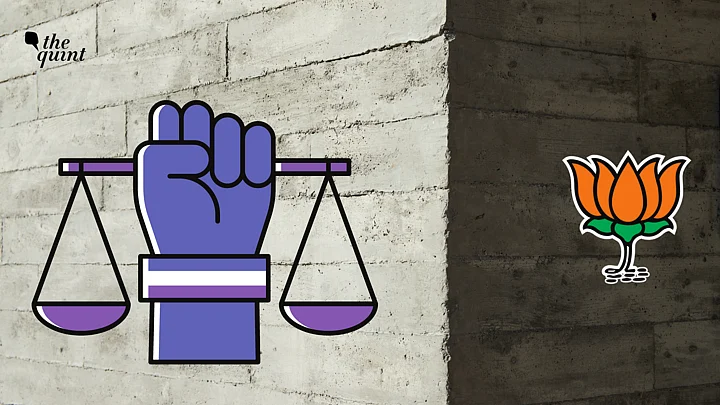The French thinker Tocqueville once remarked that “the gradual progress of equality is something fated.” He believed that human societies would not be able to resist and contest the charm of equality.
Equality was also one of three cardinal values espoused by the French revolution as is evident from its famous motto – “Liberty, Equality, and Fraternity.”
Dr BR Ambedkar had argued that these three values constitute a trinity in the sense that one is not possible in the absence of the other two.
Modern democratic societies deeply cherish the idea of equality and it has become a common-sensical notion that in order to be recognised as a ‘democracy’, you have to have some degree of ‘equality’.
This, however, is seldom the case and most (if not all) democracies display rampant inequalities of various kinds.
It is in this light that we need to analyse and evaluate the idea of equality as propounded and practised by the Bhartiya Janata Party, which is the most dominant party of the day in our country.
Religion, Gender, and Politics of ‘Equal Treatment’
The BJP, since its inception, has run a consistent campaign against the idea of favourable treatment to a particular religious minority. Leaders and spokespersons of the party claim to be working for ‘all’ and vehemently oppose ‘special privileges’ for any religious minority.
The idea of ‘equal treatment’ is inspired by the philosophical doctrine of ‘formal equality’ which blindly advocates for ‘equal treatment of all’ without taking into consideration the historical and societal circumstances.
On the other hand is the idea of ‘substantial equality’ which comprehensively takes into account the long-standing disadvantages and disabling conditions that a community has had to endure.
When we are concerned with what is called ‘substantial equality’, we are also comfortable with affirmative action of various kinds which may help in alleviating historical injustices. The reservation for scheduled castes (SC), scheduled tribes (ST), and other backward classes (OBC), for example has served such a purpose.
Particularly in the case of Muslims, the flawed idea of ‘equal treatment’ will not aid in addressing the social, educational, and economic backwardness (as highlighted by Sachar Committee Report, 2006) of the community.
The saffron party poses itself as a crusader of gender equality pointing persistently to the enactment and implementation of the Triple Talaq law (The Muslim Women [Protection of Rights on Marriage] Act, 2019).
When the Supreme Court declared Triple Talaq as violative of the constitution, Prime Minister Narendra Modi had said,
“Judgment of the Hon’ble SC on Triple Talaq is historic. It grants equality to Muslim women and is a powerful measure for women empowerment.”
While the practice of Triple Talaq is inherently inhumane, the claim that the law against it has led to the advancement of the ideal of gender equality does not hold ground.
As critics have pointed out, the law has become a tool to criminalise Muslim men who are sent to jail and thus, unable to provide maintenance to the woman. There are reports of Muslim women simply being abandoned by the husband without ‘officially’ giving a divorce, leaving the woman in an even more vulnerable situation. Hence, the condition of Muslim women continues to remain precarious.
The stand taken by the BJP-led Centre in the SC on same-sex marriage, where it opposed the idea arguing that same-sex marriages are not in compliance with the Indian family and marriage system, has further revealed the party's inadequate and incomplete understanding of gender equality.
Dealing With Caste
For a long time, the BJP was designated as a Brahmin-Baniya party which catered only to the interests of the 'upper-caste’ and urban-business owners.
However, there seems to be some change in the thinking and approach of the party wherein it has made efforts to bring into its fold the marginalised caste groups. The party has tried to woo and gain support of sub-caste groups by giving them representation and appropriating their leaders.
Its strategy of mobilising non-Yadav OBCs and non-Jatav SCs in Uttar Pradesh is indicative of a larger shift in its overall approach to caste. Although the language and practice employed by the BJP with respect to caste is patronal and accommodative, it is not transformational.
The BJP does not offer any structural challenge to the caste system and the inequality that it embedded in this system. It merely uses caste arithmetic to win elections falling short of innovating any emancipatory alternative.
What of Economic Equality?
Perhaps, the most blatantly visible form of inequality is economic inequality. To put it mildly, the BJP does not take economic equality seriously.
The party leaders and head of governments rarely bring in the issue of economic equality into their narrative. This should concern us primarily for three reasons.
Firstly, economic inequalities are on the rise in India. A new Oxfam report tells us that 5 percent of Indians own more than 60 percent of the country’s wealth, while the bottom 50 percent of the population is in control of only 3 percent of the wealth.
Secondly, the BJP is in power at the Centre and also in several states. Naturally, how seriously it takes the issue of economic equality will be immensely consequential for the country’s overall economic progress and prosperity.
Thirdly, it is pertinent to keep in mind that economic inequality is quite layered in India and it percolates into categories of caste and gender and operates in a complex and disproportionate manner.
A nuanced approach is absolutely imperative to deal with economic inequality and to herald the ‘age of equality’ which Tocqueville thought was inevitable.
(Survesh Pratap Singh is a PhD student at the Centre for Political Studies, Jawaharlal Nehru University, New Delhi. This is an opinion article and the views expressed are the author’s own. The Quint neither endorses nor is responsible for them.)
